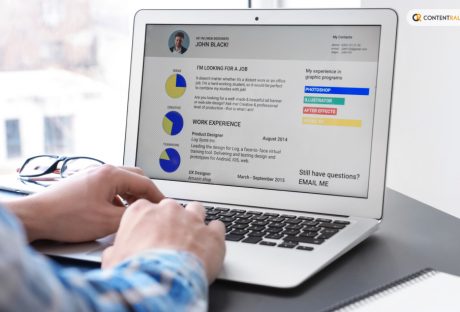Job interviews can be intimidating, even to the most seasoned professional, who has been through many interviews!
However, preparation is indeed the key. Especially when you can pick and choose impressive answers to some of the most asked interview questions.
Knowing what to expect and how to answer common questions can make a big difference.
We’ll explore the most common interview questions with expert tips to help you craft thoughtful, compelling answers. Something that can guarantee a great interview!
Whether you’re a professional at giving interviews or new to the job market, these insights can boost your confidence altogether!
1. Tell Me About Yourself

This is a common question, and there is a 99% that your interviewer will ask you the same.
Sounds easy, right?
I’m not trying to scare you of something, but the answer cannot stick to a chronology of your name, hobbies, and experiences.
This question is often your first opportunity to sell the interviewer on yourself and your background.
Did they ask the question because they want to get a sense of how your work experience and background will add value to their open position?
Expert Tip: Tailor your answer to reflect your relevant work and educational history for that specific role. Begin with your most recent experiences or studies and work backward from there. Be brief but thorough.
“Hi, my name is XYZ, and I’ve been working on my digital marketing skills, specifically in SEO and content strategy, over the last three years. I’ve increased organic traffic by 35% at my current company and would like to do it at a larger, more dynamic company.”
2. Why Do You Want To Work Here?

Employers would like to know whether you have researched their company and if you see a long-term association.
They would like to see whether you want to get this job or if it is just another run-on-the-mill interview.
Even if you must subtly fake it, it is better to show genuine interest.
Expert Tip: The last thing I think about when making decisions about my career is the pay or benefits. It just isn’t as fulfilling as everything that can make you grow professionally. So, when you answer this question, try not to talk about the CTC. You wouldn’t want to give the impression that you are hearing just for the money.
Example Answer:
“What excites me about working at Company X is the open culture and focus on constant learning and growth. This would allow me to thrive in a fast-paced environment where everyone willingly helps each other out to achieve our shared goal of building world-class software.
After all, who doesn’t like a little challenge and team bonding? Plus, I like that feedback flows freely between employees. Irrespective of seniority, department, or location. Suppose there is a better way of doing something.”
This could also be your answer as you stress more about your personality.
“I’m really impressed with your company’s ongoing commitment to sustainability and innovation. I’ve always had a personal interest in environmentally conscious initiatives.
So, I was particularly excited to learn about your recent updates in cutting down on workplace waste. It would be a great privilege for me to work for a company that’s working towards something I care so deeply about.”
3. What Are Your Strengths?

This is your opportunity to explain why you are the best candidate for the job. However, this is not your space to brag beyond calculation. Especially if you do not have the achievement or experience to back it up.
After all, how can you understand your strengths and weaknesses if you haven’t worked in a challenging setting?
So, take some time to think about your strengths and what you can bring to the role.
Expert Tip: Try to stay away from general answers such as “I’m hardworking.” Instead, opt for relevant skills and discuss how they helped you in previous positions. In fact, highlight how some of your strengths have helped you achieve something.
Example Answer:
“I think that my level of adaptability and willingness to learn is one of my greatest strengths. At my last job, we implemented XYZ, and within a month, I was the “go-to” person for troubleshooting as well as training other employees.”
4. What Are Your Weaknesses?

These interview questions are often ones that people dread.
Because they do not know whether, to be honest, they should show their vulnerability or strength disguised as weakness!
Something like, “I am a perfectionist and cannot submit something unless it is top-tier work.”
First, that sounds like a brag (which you shouldn’t brag about, and second, it is a weakness if you keep messing with deadlines).
So, try to be as honest as you can! Plus, give your interviewers ideas on how you are working towards turning that weakness into a strength.
In fact, it is a method for the interviewer to see how self-aware you are and how much you are willing to improve.
Expert Tip: Choose a weakness but discuss how you’re overcoming it. Avoid cliché answers!
Example Answer:
If you have to say “perfectionist”!
“I have always been a bit of a perfectionist, which can sometimes be a weakness. When I first started my current role, I found it difficult to delegate tasks or ask for help. Or finish anything within the deadline because submitting any work I am not satisfied with made me anxious.
Therefore, I am trying peer review as a form of coping where I let a peer review my work, and I do not think about it for the time being. It is easier for someone else to pinpoint simple errors rather than me obsessing over it.”
Here is another approach to this question!
“I would often get overwhelmed because I had taken on too much when there were others around me who could help. To overcome this, I tried to understand what others were good at and how they could support me.”
5. Can You Describe A Time When You Faced A Challenge And How You Dealt With It?

Do not worry; they do not challenge your problem-solving capacity in the workplace. So, yes, if you are a fresh graduate, you can give any academic-related anecdote.
They ask this question to learn how you handle setbacks, your problem-solving approach, and whether you get frustrated easily.
Expert Tip: I would recommend using the STAR method (Situation, Task, Action, Result) to tell them a story that answers these questions while highlighting a positive result.
Example Answer:
“At my last position, we were up against a deadline for a client project that seemed unattainable. I stepped up to the plate and re-prioritized the work on our team.
Then, I broke down the project into doable pieces and assigned them out properly. We met the deadline but delivered above what the client expected.”
6. Why Did You Leave Your Last Job (Or Why Are You Leaving)?

Again, feel free to feel overwhelmed because there is a reason behind your interviewer!
What is the interviewer really asking?
They want to know what’s motivating you and if you’re in good standing with your previous employer.
Expert Tip: Keep it positive! Don’t speak negatively about your previous employer. That is the biggest red flag when it comes to interviewees.
Example Answer:
“I’ve learned a great deal in my current position, but I’m ready to take on new challenges and be part of a team that’s pushing the envelope. I’m really excited about the prospect of managing a larger project and leading a team.”
7. Where Do You See Yourself In 5 Years?

These are common job interview questions that you are likely to face.
Employers want to feel that you have a plan in that you are thinking ahead and how they fit into your future.
Expert Tip: Be honest, but make sure that your answer reflects how it will help the company with your personal and professional development.
Example Answer:
“In five years, I want to be in a leadership position. I would like to continue to grow with the company, maybe lead a team, and have input strategy at a more senior level.”
8. How Do You Handle Stress And Pressure?

Stress is part of every job, but employers want to know if you can handle it.
It is also a good way to test your overall critical thinking capacity!
Expert Tip: Describe your strategies to remain calm and productive under stress. If applicable, give an example of how your resilience has been beneficial for you and your team.
Example Answer:
“It’s not easy, but we all need to know how to keep calm and carry on.
I actually work very well in teams! Because versatile with my approach. I am confident in my ability to get along with many people and still feel comfortable being a hard worker in a team-based environment.
Plus, a healthy competition is always good to achieve one’s full potential.”
9. Tell Me About A Time You Worked In A Team

Collaboration is important in many positions. You will likely be working on a team with others, especially if they are hiring you for a team lead position.
Expert Tip: Think of a specific time when you worked well as part of a team and what happened.
Example Answer:
“In my previous role, I did a project that involved cross-communication between marketing/sales/product teams. As the coordinator, I had to have everyone aligned and meet weekly.
I also saw a 20% improvement in product launch efficiency. The key is always to hear the other person out before going into judging mode. Even if their ideas do not align with yours, it is better to get some of the best is better.”
10. Why Should We Hire You?

Yes, it is one of the hard interview questions that many fail to answer.
However, this is your chance to tell them why you’re the best candidate for the job. Or at least explain why you would stand out among all the others who have come for an interview.
Expert Tip: Try to be subtle. Do not brag. Keep reiterating the most relevant skills and experiences. Show how you can add value to the company and solve its specific challenges.
Example Answer:
“With a background in content marketing and SEO, I think I could really help to grow your online presence and drive website traffic. I’ve managed campaigns and data before, so I would jump in right away and start adding value to the team.”
Additional Tip: Why Having A Good Resume Matters
Using the interview is important, but first, you must get the interview. You can instantly boost your chances of getting an interview by designing a strong resume.
Use these resume tips when writing yours:
- Tailor your resume for each job application by using keywords in the job posting.
- Results Not Responsibilities. Metrics and Achievements! They do not want to know your skills and experiences but what you did with them.
- Keep it clean and professional; you don’t need any gimmicks or graphics.
- Make sure there are no errors in your resume and that it is well-organized so recruiters can easily check the information they need.
Mastering The Interview Process!
Preparing for common interview questions is essential for making a strong impression. But remember, each interview is unique.
Do not forget to ask the right interview questions to your employer. Staying mute won’t help you ace that job!
Stay flexible and authentic in your responses, and don’t be afraid to show your personality.
Combine these expert tips with a well-crafted resume, and you’ll be well on your way to landing your dream job.
&
Please Do not forget your interview clothes. Check the best interview attire for men which will make you stand out!
Happy job hunting!
Read Also:
- Corporate Hackathon: Benefits To The Employees
- How to Get a Job as a Pharmaceutical Sales Representative
- How to Reach Out to a Recruiter on LinkedIn Do’s and Don’ts























